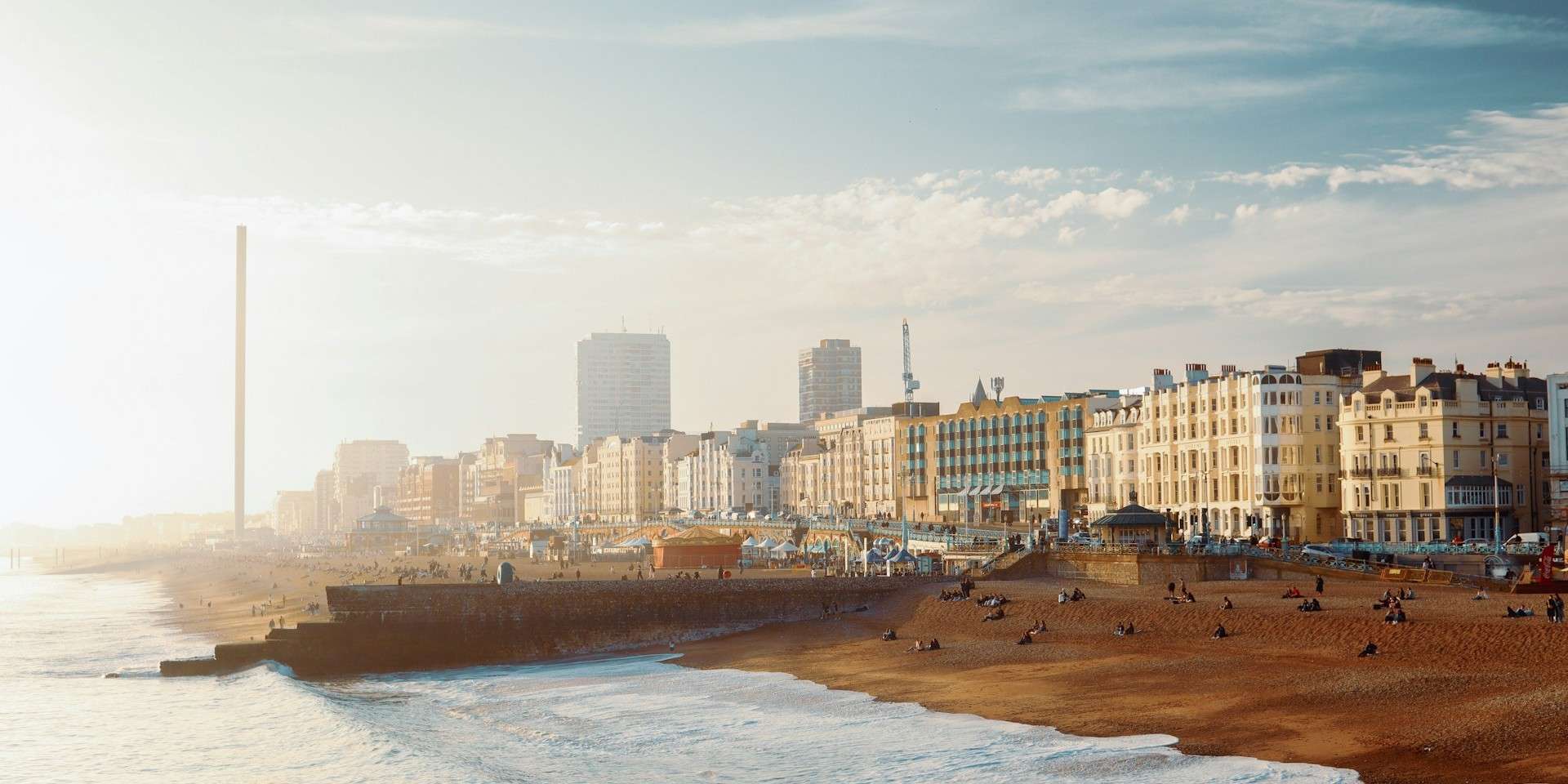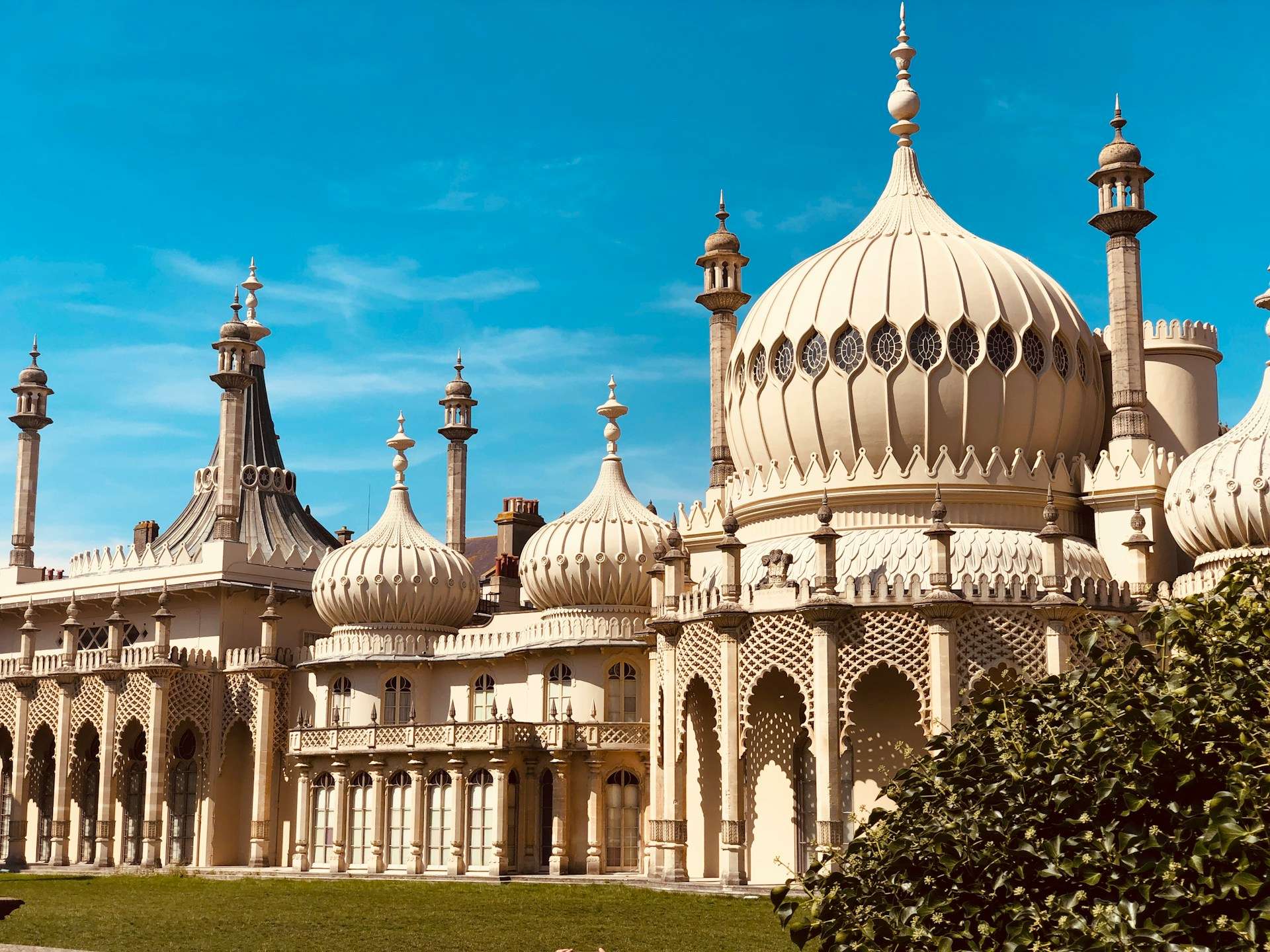
What is the best method of travel from London to Brighton?
Method | Average Duration | Average Price | Average Frequency |
By train | 1h - 1h 20m | £10 - £25 | Every 10 - 20 minutes |
By coach | 2h 30m - 3h 30m | £5 - £15 | Every 1 - 2 hours |
By car | 1h 30m - 2h+ | £15 - £25 (fuel/tolls) | N/A |
All figures included are estimates as of July 2025 and are liable to change.
Quickest way from London to Brighton: Train (from 1 hour)
Cheapest way from London to Brighton: Coach (from £5)
Our recommended way to travel: Train
Why? The train from London to Brighton is quick, cheap if booked in advance, and drops you right in the heart of the city. Compared to the coach, it cuts travel time in half, and unlike driving, you avoid the stress of traffic and parking near the seafront.
London to Brighton trains
We believe the most efficient way to travel from London to Brighton is by train. There are direct services from London Victoria, London Bridge, London Blackfriars and London St Pancras, primarily operated by Southern and Thameslink, so you can expect a pretty regular timetable for a great price, no matter where you’re setting off from in the Big Smoke.
Southern trains (from London Victoria)
Southern Railway runs the fastest and most frequent services, especially from London Victoria to Brighton. These trains run roughly every 10 to 15 minutes, and journey times are typically between 55 minutes and 1 hour 10 minutes.
Ticket prices start at around £10 when booked in advance, but can rise to £25 or more for peak flexible tickets. For the best value, use National Railcards, travel off-peak, or check for Split Ticketing options.
Southern trains terminate at Brighton Station, which is centrally located and within easy walking distance of the beach, the Royal Pavilion, and the North Laine shopping district.
Thameslink trains (from London St Pancras, Farringdon, Blackfriars and London Bridge)
Thameslink services offer another great alternative, with direct trains from St Pancras International, Farringdon, Blackfriars, and London Bridge. These routes are especially useful if you're based in North or Central London. The average journey time is 1 hour 15 minutes, and trains run every 15 to 30 minutes throughout the day.
Thameslink trains can be slightly slower, but they’re often less crowded, and fares can be lower, particularly if you’re travelling at quieter times. They also provide easy connections from other services like the Elizabeth Line or Gatwick Airport trains.
If you're coming from the Midlands or North, you can change at St Pancras or London Bridge and continue your journey to Brighton without the need for a Tube transfer.

London to Brighton coach
If you’re travelling on a tight budget and have a bit more time to spare, taking the coach is a viable option.
Both National Express and FlixBus run daily services between London Victoria Coach Station and Brighton Pool Valley Coach Station, located close to the seafront and the historic Brighton Palace Pier. Coaches typically take 2.5 to 3.5 hours, but journey times can stretch further depending on London traffic or roadworks.
Expect to pay between £5 and £15, with the lowest fares available when booking in advance. Amenities usually include Wi-Fi, charging points, toilets, and reclining seats.
While coaches are less convenient than trains, they’re ideal for students, backpackers, or anyone looking for the most affordable option. Bear in mind that coaches may take indirect routes and can be affected by peak hour congestion, especially on Fridays and bank holidays.
London to Brighton drive
Driving to Brighton from London gives you the most flexibility, which is especially useful for families, groups, or those planning to explore the Sussex countryside. However, it also comes with some trade-offs.
The most common route is via the A23 and M23, with average journey times ranging from 1.5 to 2.5 hours, depending on your departure point and traffic conditions. The A23 takes you directly into Brighton city centre, but delays are common near Croydon, Gatwick, and approaching Preston Park in Brighton.
Parking in Brighton can be a challenge, especially on summer weekends. Street parking is limited and often expensive, so consider using multi-storey car parks like:
- Churchill Square (central and close to the beach)
- London Road Car Park (good for North Laine shopping)
- The Lanes Car Park (for easy access to the seafront and shopping)
Alternatively, avoid the stress altogether with Park & Ride options, such as the free facility at Withdean Stadium, with frequent bus connections into town.
For scenic value, consider a stop en route at Box Hill, Gatwick Aviation Museum, or Devil’s Dyke just outside Brighton for sweeping views of the South Downs.

 NO.1
NO.1







